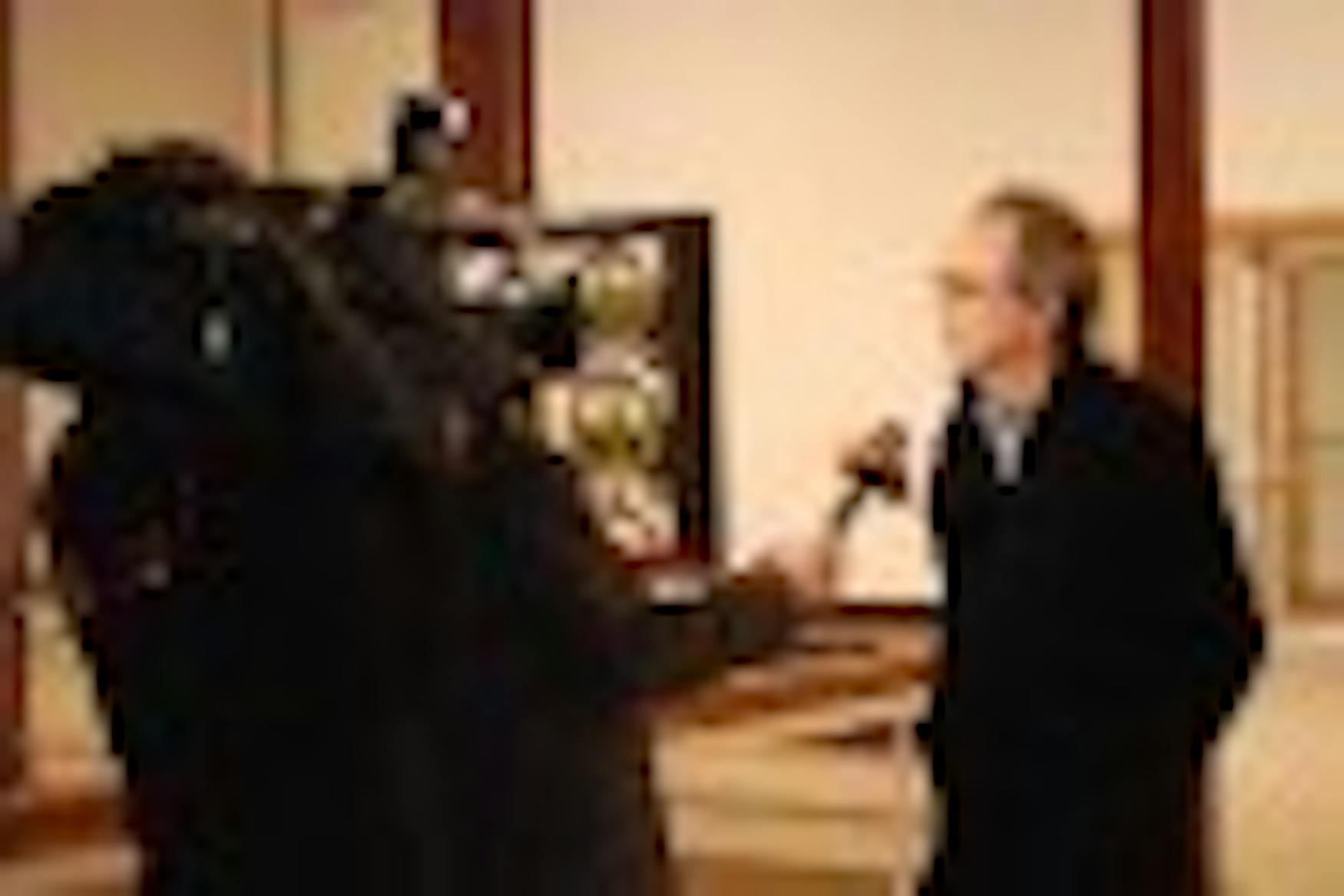Rose family condemns University
The Rose family presented a statement condemning the proposed changes to the Rose Art Museum at an interdisciplinary symposium titled "Preserving Trust: Art and the Art Museum" Amidst Financial Crisis at the Rose last night.The statement, according to copies provided at the symposium, was written on "behalf of over 50 members of the Rose Family" and urges "the current university president and the trustees to restore the use, budget, staffing and activities of the Rose Art Museum until a final decision is issued by a court."
Meryl Rose, a spokeswoman for the Rose family, a Rose Museum Board member and an art collector, read the statement to assembled Brandeis faculty and students, about 20 members of the Rose family, Rose museum staff and members of the intellectual community at the symposium.
The statement also says that "repurposing the museum is closing by another name. It would not be the Rose. Any other understanding of the university's current plan is disinformation."
Meryl Rose said in an interview with the Justice that the Rose family collectively decided that a written statement condemning the University's actions toward the Rose was necessary because of the family's attachment to the museum. "We just felt that we had to say something. We had to be proactive."
While Meryl Rose described Brandeis as a "wonderful institution," she said that the administration needs to acknowledge its errors in the way it handled the situation with the museum. "Personally, what I would love to see is for [the administration] to say, 'We made a mistake,'" she said, adding that "there would be no shame if they admitted they made a mistake. It would be seen as a very big, bold move."
Meryl Rose also said that the museum's closure will have future implications for her family's donations. "Anything we give [to institutions in the future] would have documents attached to it that would be scrutinized by several lawyers," she said.
Boston attorney Edward Dangel III, who has been hired by Chair of the Rose Board of Overseers Jonathan Lee to pursue legal blocks to the administration's decision to close the museum, said that the administration needs to address the "very serious question" of "if Brandeis is allowed to break up this collection and close this museum, [whether] other people in America who have important collections and important things to give and a specific intent in mind for that gift will give in the future."
Prior to Meryl Rose's presentation of the statement, Michael Rush, the director of the Rose Art Museum, told the audience that "the Rose Art Museum as we know it will not exist after the middle of May [because] the University saw the museum as a plan to assist its fiscal crisis."
The panelists who presented after Meryl Rose's statement, literary scholar and Harvard professor Stephen Greenblatt, former Poet Laureate and Boston University professor Robert Pinsky and novelist Claire Messud, stressed the importance of art and the preservation of culture.
Greenblatt stated that "a university without a modern art museum cannot fully make good on the cognitive life of introducing arts to the university."
"We must have a Rose Art Museum because we cannot teach children of the 21st century how to solve problems without modern and contemporary art," Greenblatt said during his presentation.
Pinsky said in an interview with the Justice that the administration's decision to close the museum would have a detrimental effect on students. "It's as though the University is risking saying to the students, 'We don't know how to take care of you,'" he said.
Prof. Mark Auslander (ANTH), who moderated the event, said in an interview that the Rose family statement showed the impact of the University's decision on its benefactors. "The Rose family statement is enormously powerful because it shows the impact of closing the museum on the wider philanthropic community," he said.
Provost Marty Krauss, who attended the event, said in an interview with the Justice that the symposium would not affect the administration's decisions regarding the museum.
"This is a community event for intellectuals who love the art to talk about the nature of the art. It is not a strategy meeting. The type of event tonight is not designed to make policy but to give people a space to talk," she said.
Pinsky said, "[The symposium] is not a policy meeting. It is a meeting about values. Values should determine policy. If policy meetings are only determined by policy, they're tautological, they're futile."
However, Beccah Ulm '11, who organized the Rose sit-in protest on Jan. 29, said that she hoped the event would influence the policy toward the Rose.
"I find it frustrating that we're only taken seriously when we go through the avenues set up by the administration," Ulm said.
Prof. Mary Baine Campbell (ENG) later said in a phone interview with the Justice, "The detrimental effects [of closing the Rose] for the University as a liberal arts institution are especially frightening to me not just for practical reasons, but that I believe it is possible to lose a part of the human heritage."
The symposium occurred shortly after Krauss announced by e-mail the formation of a new committee to handle the future of the Rose Art Museum.
The tentatively named Committee on the Future of the Rose will be chaired by Prof. Jerry Samet (PHIL) and will consist of faculty, staff, alumni and graduate and undergraduate students, according to the e-mail.
Samet wrote in an e-mail to the Justice, "The committee will only make recommendations; it will not make final decisions. The broader Brandeis community will have an opportunity to digest and comment on the report, and the administration will ultimately make a recommendation to the Board of Trustees."
Samet wrote in his e-mail that the committee will try to develop a timeline at its first meeting this coming Thursday.
Krauss said in an interview with the Justice, "Based upon the reaction on campus to news about the Rose Art Museum, it was clear that we needed a broader representation of different constituencies of the University," she said.
"My hope is that our recommendations will contribute to the formation of a plan for the Rose Art Museum that will be embraced by the community at large," Samet wrote in an e-mail to the Justice.




Please note All comments are eligible for publication in The Justice.